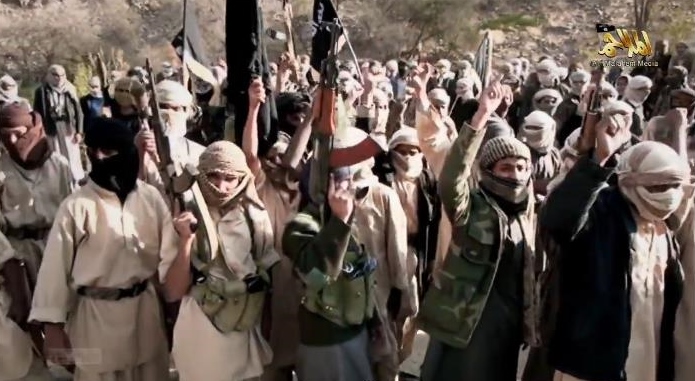Australia/Israel Review
Deconstruction Zone: The ‘Long War’ is not getting shorter
Oct 9, 2018 | Clifford May

Seventeen years ago, out of a clear blue sky, Americans were massacred on a scale unprecedented since Pearl Harbor.
The Japanese attack of 1941 led to an intense but relatively brief war. By contrast, the Sept. 11, 2001 attack has led to what some call “The Long War,” a low-intensity conflict with no end in sight.
To say that the 9/11 attacks came out of clear blue sky is true literally but not figuratively. Self-proclaimed jihadists had long been using vehicles packed with ordnance and operated by aspiring martyrs as smart bombs.
That was the modus operandi in Beirut, 1983; New York City, 1993; and against the USS Cole off the coast of Yemen in 2000, to take just a few examples.
But the rising threat posed by belligerent, apocalyptic, revanchist Islamist movements was discounted if not ignored by intelligence agencies, most think tanks, the media and, especially, academia where new orthodoxies were increasingly being enforced.
Even after the attacks on New York and Washington, there was strong reluctance to examine the theologically based ideologies of those waging what they called a jihad to re-establish Islamic supremacy in the world.
Instead, as early as Sept. 16, 2001, US President George W. Bush spoke of a “war on terrorism,” emphasising the weapon rather than those wielding it and their aims.
In 2013, then US President Barack Obama declared the war over. Henceforth, “countering violent extremism” was all that was necessary.
Obama then announced his “pivot to Asia,” which was really an attempt to retreat from the turbulent Middle East. His boldest move was to seek détente with the Islamic Republic of Iran, the only major nation in the world openly committed to jihad against the US and the West.
He concluded a deal with Iran’s theocrats, the curiously named Joint Comprehensive Plan of Action. It gave implicit consent to their hegemonic ambitions, funded them, and turned a blind eye to their threats against their neighbours, their domestic oppression, and their sponsorship of terrorism in the Middle East, Latin America, Europe and America. The war to which they have been contributing in Syria over the past seven years – with no serious pushback from the US or Europe – has cost more than a half million lives.
In exchange for these concessions, Iranian rulers agreed to delay – not end – a nuclear weapons program whose existence they have never publicly acknowledged. President Donald Trump withdrew from the deal. The European Union continues to do what it can to keep it alive.
The grim reality is that after 17 years of conflict, we have not decisively defeated al-Qaeda or the Taliban. Far from it: AQ franchises proliferate and, according to expert Thomas Joscelyn, “the Taliban’s men contest or control approximately 60 percent of [Afghanistan] – as much ground as at any point since the US-led invasion in late 2001.”
The Islamic State, which splintered from AQ and is one of many jihadist groups operating in dozens of countries on several continents, is down but hardly out.
The Islamic Republic’s long-term goal remains, as it has for nearly 40 years, “Death to America!” The Supreme Leader now projects power into Syria, Lebanon, Yemen, Gaza and Iraq. He aids those fighting Americans in Afghanistan. He sponsors terrorists with impunity.
The only good news: The imperial overstretch of his corrupt and unpopular regime may be strained beyond its limits by the tough economic measures being imposed by the current US administration.
Nevertheless, our enemies do not appear exhausted, discouraged or underfunded. Do we know them yet or are we still trying to imagine what “drives” people to “violent extremism”? Do we have the stomach to endure “The Long War” – which, I believe, should be recognised as a multi-front struggle against jihadism? Do we have the patience to develop a winning strategy even if that requires – as it clearly does – much trial and too many errors?
Clifford D. May is president of the Foundation for Defence of Democracies (FDD) and a columnist for the Washington Times. Reprinted from the Washington Times. © FDD reprinted by permission, all rights reserved.
Tags: Iran, Islamic Extremism, Middle East, Terrorism






